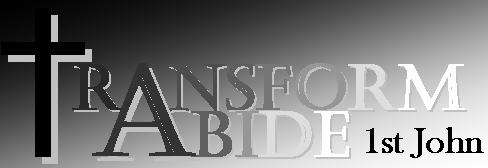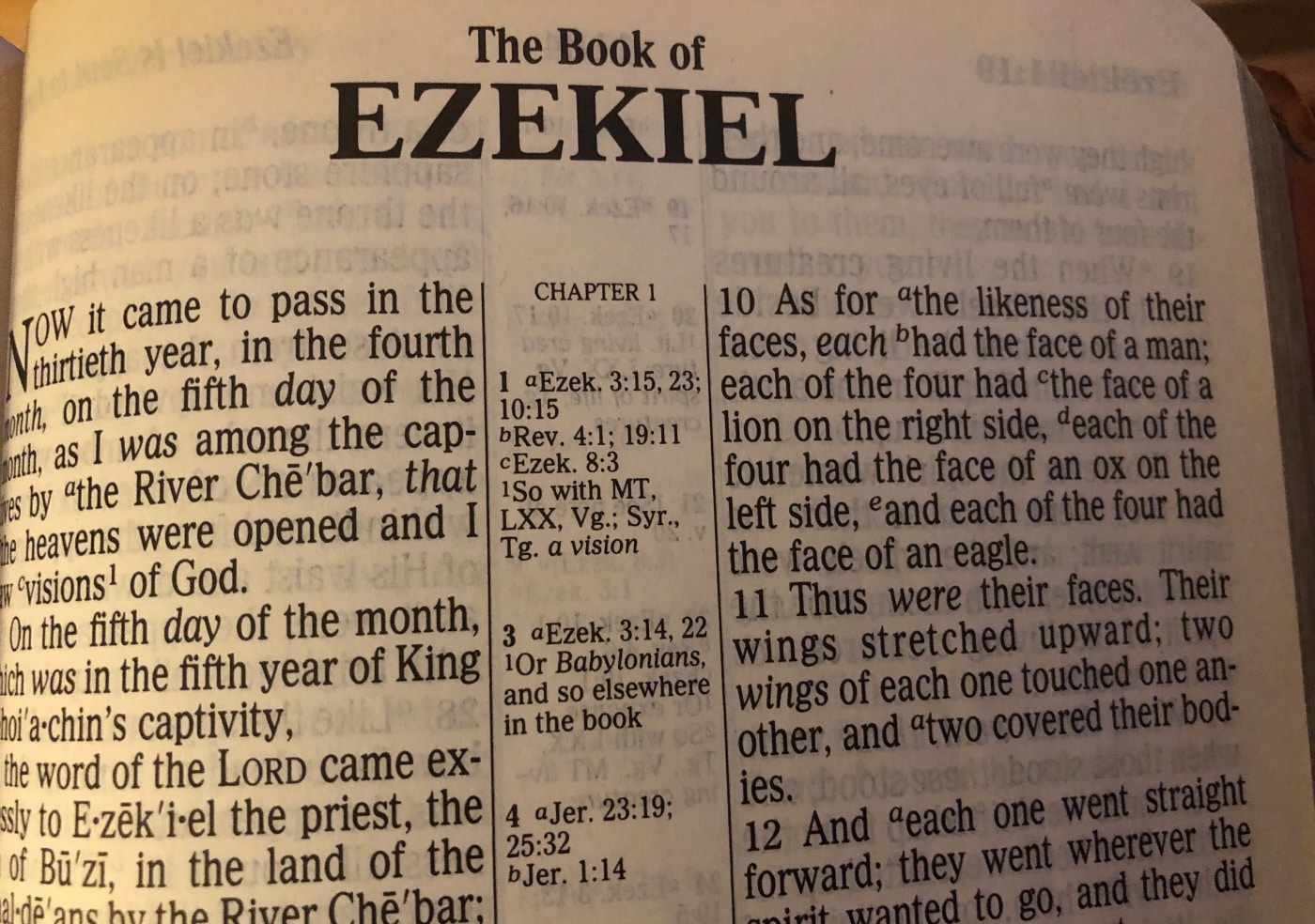 John’s primary PURPOSE is that believers will enter and maintain fellowship with God, with the RESULT of inner joy.
John’s primary PURPOSE is that believers will enter and maintain fellowship with God, with the RESULT of inner joy.“That which we have seen and heard we declare to you, that you also may have fellowship with us; and truly our fellowship is with the Father and with His Son Jesus Christ. And these things we write to you that our joy may be full … These things I have written to you who believe in the name of the Son of God that you may know that you have eternal life, and that you may [continue to] believe in the name of the Son of God.” 1Jo 1:3-4; 1Jo 5:13 (emphasis added)
This compilation of notes represents the truths found in the Epistle of First John.
Gene Cunningham - September 25, 2003
Ezekiel #25

As believers in Christ, we have everything we need spiritually. The entire Godhead is involved (Eph 1:3-14). Promise of abundant life preceded the Law of Moses (Gal 3:16-18, Heb 6:13-18). God made an oath (Eze 20:5-6). Sabbaths were a sign (Eze 20:12). Ezekiel prophesies the end of Israel. Sabbaths were an object lesson. Five Sabbaths: (1) Garden sabbath (Gen 2:2, Heb 4:3-4); (2) Weekly Sabbath — rest from labor (Exo 16:14-26, Mat 11:28-29); (3) Annual Sabbath — depended on faithfulness for six years (Exo 23:10-11, Lev 25:3-4); (4) Year of Jubilee all debts forgiven, all slavery abolished and all family holdings returned (Lev 25:8-15); (5) Millennial Sabbath — God gives the earth a holiday for 1000 years (Rev 20:4, Rev 14:13). The Seven Feasts are also Sabbaths: (1) Passover (1Co 5:7) teaches the cross as history's center; (2) Unleavened bread — fellowship through cleansing (Eze 20:12, 1Co 15:8); (3) Feast of first fruits (Lev 23, 1Co 15:22-23) taught the resurrection; (4) Pentecost (Lev 23, Act 2) — taught evangelism (harvest) and was a sign to the unbelieving (1Co 14); (5) Trumpets (Lev 23) calling out of the nation of Israel (Rev 7). (6) Feast of atonement — redemption of Israel (Zec 12:10, Zec 13:1); (7) Tabernacles last feast (Zec 14:16-21, Amo 9:13-15) — millennial kingdom. Only God can perform the work of sanctification (Eze 20:12) — purification through separation. Sanctification demands obedience (Eze 20:20). God will get the glory through Israel as a witness to the world (Eze 20:41). Sanctification begins at salvation (1Pe 1:2, Heb 10:10, Eph 5:26). Spirit of God is an agent in sanctification as is the word of God; we must avail ourselves of them (Joh 17:17, Eph 5:26). Sanctification is a process of cleansing to perfection — e.g., obedience, confession (1Th 5:23, 2Co 7:1). Sanctification is God's will (1Th 4:3). Zedekiah's crown is stripped; Ezekiel anticipates the crown returning only at the Second Advent of Jesus Christ (Eze 21:24-27). Ultimate sanctification (Jud 1:24-25)
Scripture References: Ezekiel 20:12, Hebrews 4:3-4, Ephesians 5:26, Revelation 20:4, Amos 9:13-15, Genesis 2:2, John 17:17, Leviticus 25:8-15, Zechariah 14:16-21, Ezekiel 20:12, Ephesians 5:26, Leviticus 25:3-4, Zechariah 13:1, Ezekiel 20:5-6, Hebrews 10:10, Exodus 23:10-11, Zechariah 12:10, Hebrews 6:13-18, Ezekiel 20:41, Matthew 11:28-29, Jude 1:24-25, Ezekiel 20:12, Galatians 3:16-18, Ezekiel 20:20, Exodus 16:14-26, Ezekiel 21:24-27, Revelation 14:13, Ephesians 1:3-14
From Series: "Ezekiel - 2002"
Ezekiel's vision of God's glory effected his life.

